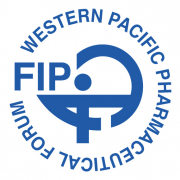The manipulation of medical research
The manipulation of medical research

picture from: http://assets.nst.com.my/images/articles/07nt14pills.transformed.jpg
IN a world already choking on half-truths, the one emerging from pharmaceutical research and testing is really shocking. News of this process being fabricated currently circulating in medical circles is sending shivers down the spine of many. And it has ostensibly led to further speculation and readjustments of prescriptions.
A doctor in Kuala Lumpur, for instance, has just told one of his patients that this was one of his suspicions all along as he asked the patient to stop taking the life-long cholesterol-lowering drug that had been prescribed. He would not object if the patient continued with herbal formulas instead.
Lest accusations of spreading misleading information and creating panic start flying towards me, let me make it clear that I am merely stating the side effects of what has already been written in influential international publications. Though whispers of “falsehoods” in medical research were aplenty before, it became somewhat full-blown just recently when the editor-in-chief of United Kingdom-based The Lancet, dubbed the world’s most respected medical journal, wrote rather bluntly that a shocking amount of published research is unreliable at best, if not completely false.
Dr Richard Horton, in his editorial comment in the April 11 issue, wrote that “the case against science is straightforward: much of the scientific literature, perhaps half, may simply be untrue. Afflicted by studies with small sample sizes, tiny effects, invalid exploratory analyses, and flagrant conflicts of interest, together with an obsession for pursuing fashionable trends of dubious importance, science has taken a turn towards darkness.” Quoting remarks made at an earlier symposium, he incredibly declared: “A lot of what is published is incorrect” and “poor methods get results”. The message was like a massive bomb explosion.
What Dr Horton is saying, according to independent online newspaper nsnbc international last week, is that major pharmaceutical companies falsify or manipulate tests on the health, safety and effectiveness of their various drugs by taking samples too small to be statistically meaningful or hiring test labs or scientists where the lab or scientist has blatant conflicts of interest such as pleasing the drug company to get further grants.
“At least half of all such tests are worthless or worse he claims. As the drugs have a major effect on the health of millions of consumers, the manipulation amounts to criminal dereliction and malfeasance,” it said in a news story headlined “Shocking report from medical insiders.”
The comments from readers that followed this posting underlined the distress. One said “I believe this is true, because this is happening in whole science, not just medicine. And the science gets tied with business more and more closely every day. If no one sees the danger of this, we may as well be doomed. Money literally do buy everything today. Even research.”
Another said: “The medical establishment’s relationship to health is, in many respects, no different than the military establishment’s relationship to peace. Without wars they’d go out of business. Both entities are to a certain extent, in the business of keeping themselves in business. Caveat Emptor (buyer beware).” To which, another reader replied: “Yes …the simplicity of your statement is perfect and in line with simple other facts like why would the pharmaceutical (firms) want a cure for cancer. A 10-billion dollar industry with a lot of people drawing six-figure incomes from it. A cure is the last thing they want.”
The same anguish is being felt in the medical fraternity in Malaysia, which already has to deal with the high cost of medicines, with one expressing it this way:
“Researchers and medical experts sponsored by big pharma have been influencing doctors to prescribe many drugs that don’t work as claimed. No wonder two thirds of diabetic patients are poorly controlled despite being on multiple drugs.”
But many said the drugs they prescribe are approved by the Food and Drug Administration of the United States which imposes very strict controls on medicines.
Another doctor in Kuala Lumpur, DKS, said: “All new drugs will undergo various levels of testing from lab studies, animal to human. Since most of the drugs are discovered and manufactured in Europe and USA, the studies are conducted within their domiciles. Countries outside of the western world will accept these drugs based on the evaluation of their studies and almost never local studies are done to look at its effectiveness and side effects. Should there be bad adverse reaction then companies will pull them out of the shelves before regulators do it.”
Whatever it is, the debate is sure to rage on. Just as Dr Horton had succinctly put it “The good news is that science is beginning to take some of its worst failings very seriously. The bad news is that nobody is ready to take the first step to clean up the system.”
Reference : http://www.nst.com.my/node/91145
